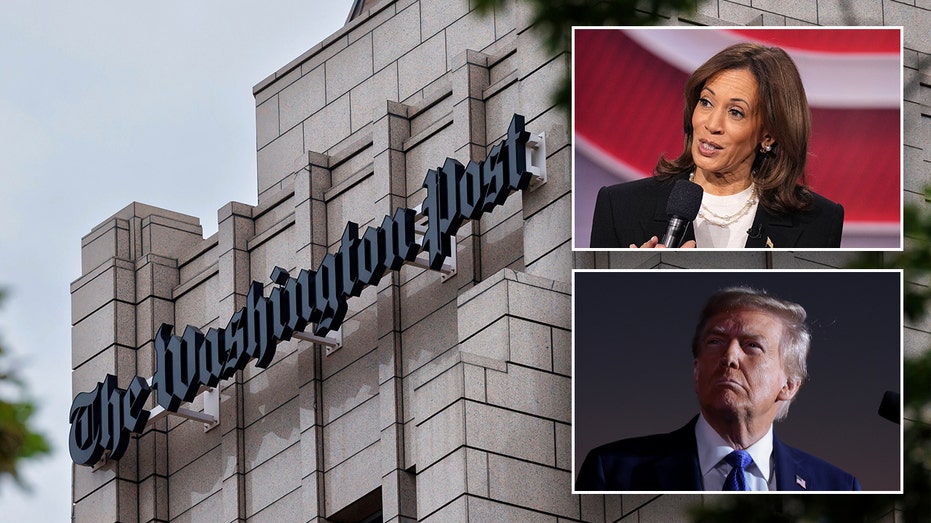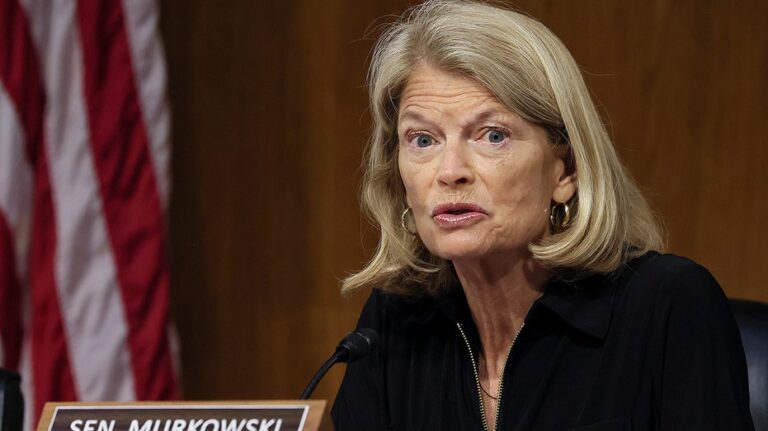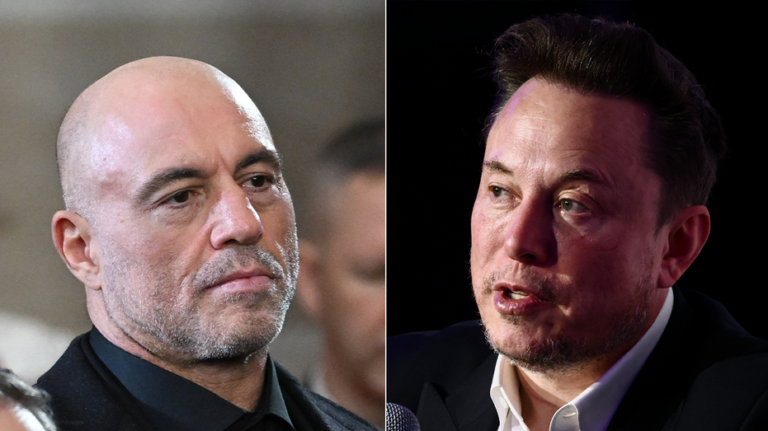
The Washington Post reported that a “cancellation movement” of once-loyal readers cutting ties with the paper is a “political statement primarily coming from the American left” as readers are outraged over its decision not to endorse Vice President Kamala Harris.
A trio of Post reporters wrote that positive internal momentum at their place of employment “came to a halt” on Friday when publisher William Lewis declared the “Democracy Dies in Darkness” paper would not endorse a presidential candidate. In the days since, an onslaught of readers posted on social media about canceling subscriptions in protest, prompting Washington Post reporters to fret over how many subscribers would ultimately walk away.
“A cancellation movement swept through social networks. Instead of using an internal analytics tool to check traffic to their own stories, some Post journalists used it to chart the soaring number of subscribers visiting the customer account page that allows them to cancel their subscriptions,” Post reporters Manuel Roig-Franzia, Herb Scribner and Laura Wagner wrote in a piece headlined “For The Post, more outrage from readers who say they’ve canceled.”
“On social media, sharing screenshots of Post subscription cancellation confirmations became more than just a thing,” the Post reporters continued. “It was a political statement primarily coming from the American left, enraged by reports in The Post and elsewhere that the newspaper’s editorial writers had drafted an endorsement of the Democratic nominee.”
Indeed, a variety of prominent liberals have posted about canceling:
It’s unclear how many subscriptions have been terminated. A Washington Post spokesperson declined comment on subscription numbers.
“Post reporters weighed in on the decision, mostly telling their readers and followers that canceled subscriptions would end up hurting journalists, not executives, and explaining the long-standing separation between the news staff and the opinions staff,” the Post reported.
“The #BoycottWaPo hashtag spawned dozens of anti-Post comments, as well as remarks from notable public figures and influencers about canceled subscriptions,” the report continued. “There was also an outpouring of support from journalists throughout the industry, who remarked that canceled subscriptions don’t impact owners like Bezos, but the reporters and staffers.”
The Post also noted that Lewis has “sought to tamp down speculation” that the paper’s billionaire owner, Jeff Bezos, made the decision in order to help former President Trump.
Lewis has claimed the decision to end presidential endorsements “was made entirely internally and neither campaign nor candidate was given a heads up or consulted,” and has told concerned staffers that “it is the wrong thing for an independent newspaper to tell readers how to vote in a presidential election.”
The Post announced on Friday that it would not be offering an endorsement in the upcoming presidential election or any future one, in what publisher Lewis said was a “returning to our roots.”
An endorsement of Harris was reportedly drafted and ready to publish before it was suddenly shelved. The paper, which has been reliably hostile to former President Trump for years, has endorsed a Democrat for president in every election since 1976, except for when it skipped one in 1988.
Multiple Post opinion columnists co-signed a column condemning the decision, at least two employees have quit in protest and many others bashed their employer on social media.
Former Time Magazine editor-in-chief Nancy Gibbs called the non-endorsement an act of “self-sabotage” by the paper before suggesting Post readers would have trouble deciding who to vote for as a result.
“I’m worried they’ll have trouble deciding whom to trust,” Gibbs wrote in a New York Times piece.
The Washington Post reported that a “cancellation movement” of once-loyal readers cutting ties with the paper is a “political statement primarily coming from the American left” as readers are outraged over its decision not to endorse Vice President Kamala Harris.
A trio of Post reporters wrote that positive internal momentum at their place of employment “came to a halt” on Friday when publisher William Lewis declared the “Democracy Dies in Darkness” paper would not endorse a presidential candidate. In the days since, an onslaught of readers posted on social media about canceling subscriptions in protest, prompting Washington Post reporters to fret over how many subscribers would ultimately walk away.
“A cancellation movement swept through social networks. Instead of using an internal analytics tool to check traffic to their own stories, some Post journalists used it to chart the soaring number of subscribers visiting the customer account page that allows them to cancel their subscriptions,” Post reporters Manuel Roig-Franzia, Herb Scribner and Laura Wagner wrote in a piece headlined “For The Post, more outrage from readers who say they’ve canceled.”
“On social media, sharing screenshots of Post subscription cancellation confirmations became more than just a thing,” the Post reporters continued. “It was a political statement primarily coming from the American left, enraged by reports in The Post and elsewhere that the newspaper’s editorial writers had drafted an endorsement of the Democratic nominee.”
Indeed, a variety of prominent liberals have posted about canceling:
It’s unclear how many subscriptions have been terminated. A Washington Post spokesperson declined comment on subscription numbers.
“Post reporters weighed in on the decision, mostly telling their readers and followers that canceled subscriptions would end up hurting journalists, not executives, and explaining the long-standing separation between the news staff and the opinions staff,” the Post reported.
“The #BoycottWaPo hashtag spawned dozens of anti-Post comments, as well as remarks from notable public figures and influencers about canceled subscriptions,” the report continued. “There was also an outpouring of support from journalists throughout the industry, who remarked that canceled subscriptions don’t impact owners like Bezos, but the reporters and staffers.”
The Post also noted that Lewis has “sought to tamp down speculation” that the paper’s billionaire owner, Jeff Bezos, made the decision in order to help former President Trump.
Lewis has claimed the decision to end presidential endorsements “was made entirely internally and neither campaign nor candidate was given a heads up or consulted,” and has told concerned staffers that “it is the wrong thing for an independent newspaper to tell readers how to vote in a presidential election.”
The Post announced on Friday that it would not be offering an endorsement in the upcoming presidential election or any future one, in what publisher Lewis said was a “returning to our roots.”
An endorsement of Harris was reportedly drafted and ready to publish before it was suddenly shelved. The paper, which has been reliably hostile to former President Trump for years, has endorsed a Democrat for president in every election since 1976, except for when it skipped one in 1988.
Multiple Post opinion columnists co-signed a column condemning the decision, at least two employees have quit in protest and many others bashed their employer on social media.
Former Time Magazine editor-in-chief Nancy Gibbs called the non-endorsement an act of “self-sabotage” by the paper before suggesting Post readers would have trouble deciding who to vote for as a result.
“I’m worried they’ll have trouble deciding whom to trust,” Gibbs wrote in a New York Times piece.



